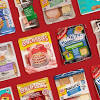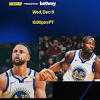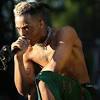Hugh Jackman Shares New Skin Cancer Scare

By Steve Blanchard - April 05, 2023
Wolverine has a fresh reminder to fans to take care of their skin and undergo regular skin cancer screenings. Actor Hugh Jackman, famous for the superhero role, once again took to social media with a bandage on his nose sharing the next chapter in his skin cancer journey.
In a video post on Instagram, Jackman shared that he and his doctors noticed “little things that could be or could not be basal cell” (carcinomas).
Dr. Rogerio Neves, Reconstructive Surgery program leader with the Department of Cutaneous Oncology at Moffitt Cancer Center, said basal cell carcinoma is one of the two most common forms of skin cancer and is highly treatable if detected early. The other is squamous cell carcinoma.
“Chronic sun exposure is one of the primary causes of basal cell carcinoma,” Neves said. “But it can also be brought on by exposure to other ultraviolet lights, including commercial tanning beds.”
According to Neves, that UV light can cause genetic mutations in skin cells, specifically the basal cells, which are responsible for producing new cells as old ones are shed.
"Chronic sun exposure is one of the primary causes of basal cell carcinoma."
- Dr. Rogerio Neves, Reconstructive Surgery program leader
In his post, Jackman said he was still awaiting tests on the skin removed from his nose and should have results in a few days. He had his first skin cancer removed in 2013 and has had multiple lesions removed since then, most recently in 2021.
“It’s always a bit of a shock just hearing the word ‘cancer,’” Jackman said in his video. “Being an Australian it’s a very common thing. I never wore sunscreen growing up so I was a prime candidate for it. … Please wear sunscreen, it is just not worth it, no matter how much you want a tan. Trust me!”
Annual screenings are the best way to ensure that any concerning areas are on your radar, and Moffitt’s Mole Patrol offers free screenings throughout the year.
The team’s next free cancer screenings are on:
- April 16 during the Steps Against Melanoma Walk at Al Lopez Park in Tampa
- May 21 at Tropicana Field in St. Petersburg
- July 29 at the Pier 60 Pavilion on Clearwater Beach
Jackman is not alone in his multiple experiences with basal cell carcinoma. People who are diagnosed may develop additional lesions elsewhere on their skin later in life. Basal cell carcinoma is commonly called a non-melanoma skin cancer, which means it is much less likely to spread.
Jackman appeared optimistic in his post and shared that his prognosis is good and that there is little concern about his health at this point. In fact, he added, “it’s probably fine.”
Sun Safety Tips
- Exposure – Limit sun exposure between 10 a.m. and 3 p.m. when UV is its most intense.
- Clothing – Protect your skin from sun damage with clothing, including a loose-fitting, long-sleeved shirt and long pants made of a tightly woven fabric. Swimming? Opt for a T-shirt or rash guard while in the water.
- Hat – Protect your head, ears, face and neck with the shade of a wide-brimmed hat constructed of a tightly woven fabric like canvas (UV rays can penetrate a straw hat). If you wear a baseball cap, use sunscreen on exposed areas like your face, neck and ears.
- Sunglasses – Wear sunglasses that block both UVA and UVB rays. Well-designed sunglasses can help prevent cataracts and protect the delicate skin around your eyes from the harmful effects of sun exposure.
- Shade – Seek shade underneath a shelter, umbrella or tree, especially during the midday hours. Use extra caution near surfaces that reflect the sun’s rays, like water and sand.
- Sunscreen – 30 minutes before going outside, always apply a waterproof, broad-spectrum sunscreen with a sun protection factor of 15 to 30. Don’t forget your ears, the tops of your feet and the scalp. Reapply every two hours.


 United States
United States Argentina
Argentina  Australia
Australia  Austria
Austria  Brazil
Brazil  Canada
Canada  Chile
Chile  Czechia
Czechia  France
France  Germany
Germany  Greece
Greece  Italy
Italy  Mexico
Mexico  New Zealand
New Zealand  Nigeria
Nigeria  Norway
Norway  Poland
Poland  Portugal
Portugal  Sweden
Sweden  Switzerland
Switzerland  United Kingdom
United Kingdom 

































